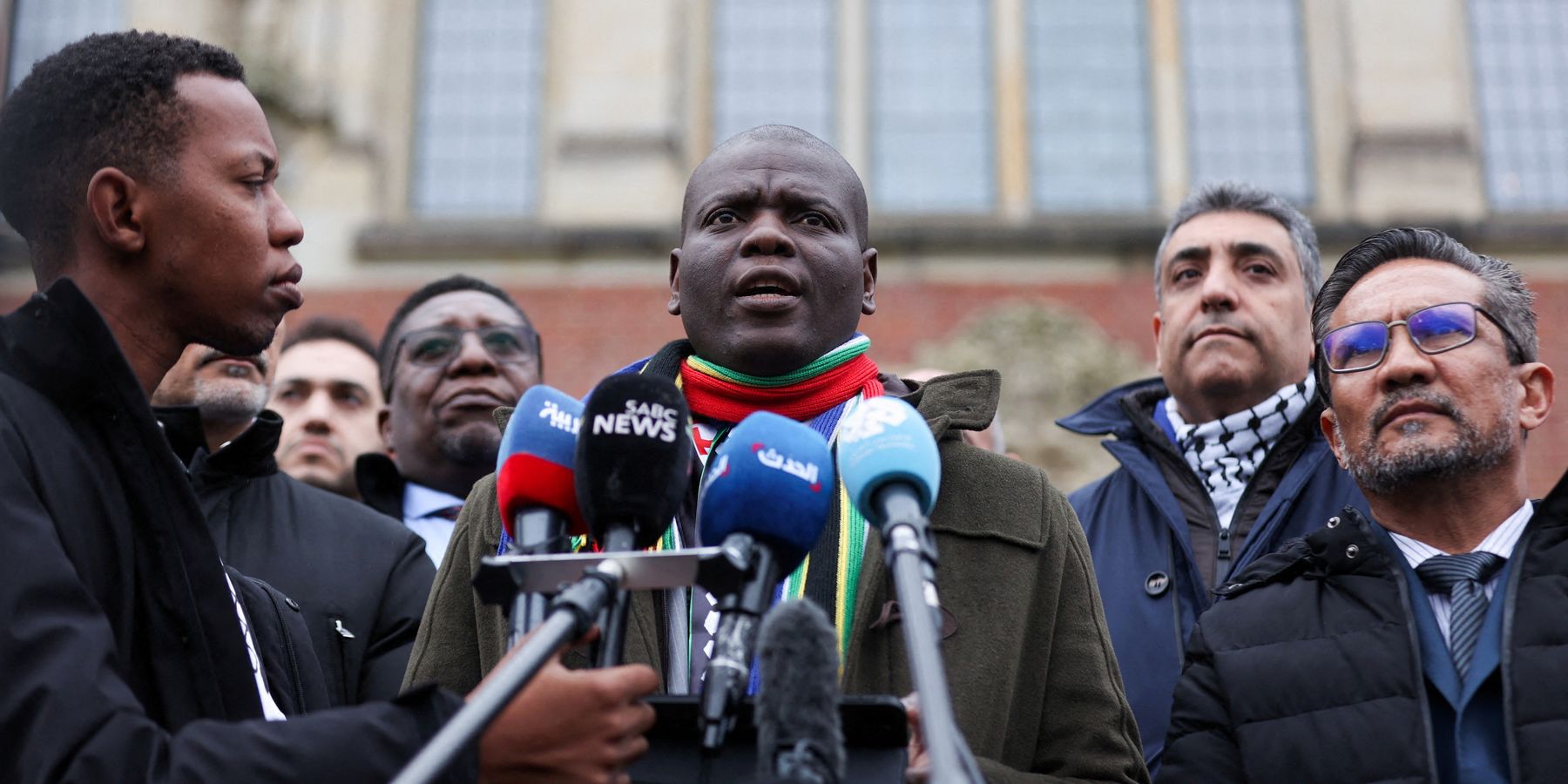The International Court of Justice (ICJ) just ruled against Israel and determined that South Africa successfully argued that Israel’s conduct plausibly could constitute genocide. The Court imposes several injunctions against Israel and reminds Israel that its rulings are binding, according to international law.
In its order, the court fell short of South Africa's request for a ceasefire, but this ruling, however, is overwhelmingly in favor of South Africa's case and will likely increase international pressure for a ceasefire as a result.
On the question of whether Israel's war in Gaza is genocide, that will still take more time, but today's news will have significant political repercussions. Here are a few thoughts.
This is a devastating blow to Israel’s global standing. To put it in context, Israel has worked ferociously for the last two decades to defeat the BDS movement — Boycott, Divestment, and Sanctions — not because it will have a significant economic impact on Israel, but because of how it could delegitimize Israel internationally. However, the ruling of the ICJ that Israel is plausibly engaged in genocide is far more devastating to Israel's legitimacy than anything BDS could have achieved.
Just as much as Israel's political system has been increasingly — and publicly — associated with apartheid in the past few years, Israel will now be similarly associated with the charge of genocide. As a result, those countries that have supported Israel and its military campaign in Gaza, such as the U.S. under President Biden, will be associated with that charge, too.
The implications for the United States are significant. First because the court does not have the ability to implement its ruling. Instead, the matter will go to the United Nations Security Council, where the Biden administration will once again face the choice of protecting Israel politically by casting a veto, and by that, further isolate the United States, or allowing the Security Council to act and pay a domestic political cost for “not standing by Israel.”
So far, the Biden administration has refused to say if it will respect ICJ's decision. Of course, in previous cases in front of the ICJ, such as Myanmar, Ukraine and Syria, the U.S. and Western states stressed that ICJ provisional measures are binding and must be fully implemented.
The double standards of U.S. foreign policy will hit a new low if, in this case, Biden not only argues against the ICJ, but actively acts to prevent and block the implementation of its ruling. It is perhaps not surprising that senior Biden administration officials have largely ceased using the term “rules-based order” since October 7.
It also raises questions about how Biden’s policy of bear-hugging Israel may have contributed to Israel’s conduct. Biden could have offered more measured support and pushed back hard against Israeli excesses — and by that, prevented Israel from engaging in actions that could potentially fall under the category of genocide. But he didn’t.
Instead, Biden offered unconditional support combined with zero public criticism of Israel's conduct and only limited push-back behind the scenes. A different American approach could have shaped Israel’s war efforts in a manner that arguably would not have been preliminarily ruled by the ICJ as plausibly meeting the standards of genocide.
This shows that America undermines its own interest as well as that of its partners when it offers them blank checks and complete and unquestionable protection. The absence of checks and balances that such protection offers fuels reckless behavior all around.
As such, Biden’s unconditional support may have undermined Israel, in the final analysis.
This ruling may also boost those arguing that all states that are party to the Genocide Convention have a positive obligation to prevent genocide. The Houthis, for instance, have justified their attacks against ships heading to Israeli ports in the Red Sea, citing this positive obligation. What legal implications will the court’s ruling have as a result on the U.S. and UK’s military action against the Houthis?
The implications for Europe will also be considerable. The U.S. is rather accustomed to and comfortable with setting aside international law and ignoring international institutions. Europe is not.
International law and institutions play a much more central role in European security thinking. The decision will continue to split Europe. But the fact that some key EU states will reject the ICJ’s ruling will profoundly contradict and undermine Europe’s broader security paradigm.
One final point: The mere existence of South Africa’s application to the ICJ appears to have moderated Israel’s war conduct. Any plans to ethnically cleanse Gaza and send its residents to third countries appear to have been somewhat paused, presumably because of how such actions would boost South Africa’s application. If so, it shows that the Court, in an era where the force of international law is increasingly questioned, has had a greater impact in terms of deterring unlawful Israeli actions than anything the Biden administration has done.
- US will take massive hit in global standing over Israel ›
- On Gaza: What would Martin Luther King do? ›
- At the Hague, US more isolated than ever on Israel-Palestine | Responsible Statecraft ›
















